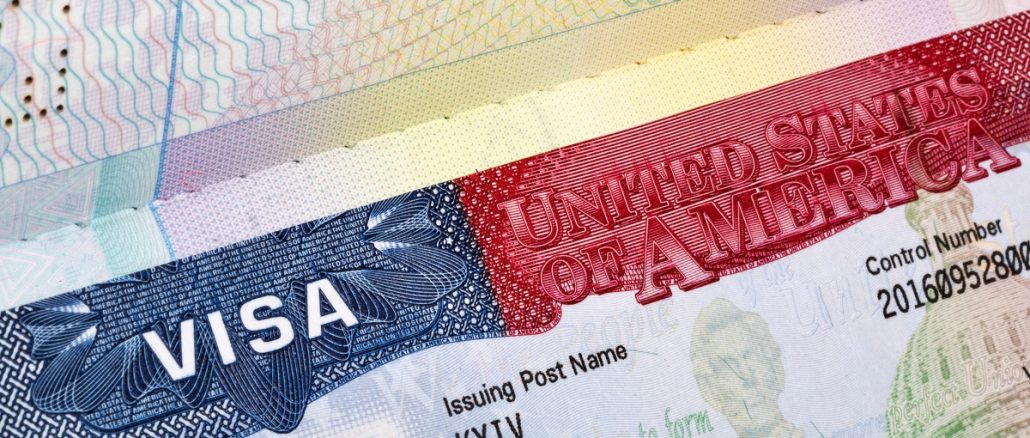
When traveling to the United States, non-citizens must frequently apply for visas. There are three different types of visa: a student visa, a work visa, and a travel visa. Jean Danhong Chen explains the difference between these three types of visa and the process for applying for them.
Travel Visas
There are many countries for which a travel visa is not necessary with a stay shorter than 90 days. The Visa Waiver Program covers citizens of countries like Australia, France, Greece, Ireland, and South Korea. Notably, Canada is not covered under the Visa Waiver Program.
Visiting for tourism, medical treatment, and family visits are permitted under the Visa Waiver Program. Short-term training for business is also permitted, but you must not be paid by a United States company except for the reimbursement of your expenses.
The Visa Waiver Program does not cover nationals who have traveled to certain sensitive countries around the world. These include North Korea, Iran, Iraq, Sudan, and Libya. Diplomatic or military travel is allowed.
The following activities are not permitted under the Visa Waiver Program. Study for credit, employment, work as a member of the foreign press, or permanent residence are not allowed.
Student Visas
If a foreign national is enrolled at an educational institution for credit, they will need to apply for a student visa. Student visas cover academic and vocational studies. Students must first be accepted to the educational institution of their choice. These schools must be approved by the Student and Exchange Visitor Information System.
Student visas are also available for the spouses and children of non-citizens who are studying at an accredited university. Interviews may be required for students age 14 to 79. Interviews take place at the local U.S. Embassy or Consulate.
Student exchange program visitors are also eligible to apply for student visas as long as the parameters of their visits fall under the correct category.
Work Visas
Temporary worker visas fall under a number of different categories. H-1B is for workers in specialty occupations, or those requiring higher education degrees. This covers fashion models, research and development personnel, and projects administered by the Defense Department.
H-2A is for workers who will be temporarily taking part in agricultural work. This is limited to nationals or citizens of designated countries. There are limited exceptions to this visa.
H-2B is for seasonal or temporary non-agricultural work. Citizens or nationals of designated countries may apply for this visa. If it is in the United States’ best interest, they will be accepted.
Other types of work visa include the Intracompany Transferee, the Individual with Extraordinary Ability or Achievement, the Individual or Team Athlete, and the Artist or Entertainer visa program.
The Visa Application Process
The application process for a visa of any type can be confusing and time-consuming. Having an experienced immigration attorney like Jean Danhong Chen can be invaluable to the receipt of your visa.
The process begins with the DS-160 form, which is a standard form for U.S. non-immigrant visas. Then an online profile must be created and the steps to schedule an interview appointment must be followed. The visa fees must be paid. The appointment needs to be scheduled at the U.S. Embassy or Consulate in the country in which the applicant resides. Another appointment must be made for fingerprinting and photographing the applicant.
The consular interview may be challenging. This process helps to weed out people who are applying for a visa under false pretenses.
A visa is then issued for travel to the United States for student, work, or travel purposes.
Requirements for Living on a Visa
Above all, the terms of having a visa require that the time period on the original visa must not be overstayed. If a non-citizen stays in the United States past the period of their original visa, they must apply for another one or face deportation. This can be a problem for immigration officials. Many people do overstay their visas, and most are not apprehended. The consequences if they are caught are severe and can result in deportation.
Understanding Visa Travel
A visa provides temporary permission for a foreign national to live in the United States. These legal documents can provide exciting opportunities for foreign nationals and represent an important part of their educational or work background. While international residents can visit the United States on a visa, they must be careful to abide by all laws and regulations that cover visa recipients.
An immigration attorney like Jean Danhong Chen is a must when planning a visa stay in the United States. Using the services of an immigration attorney, you can be sure that you are fulfilling all of the legal requirements for a stay in the United States without running afoul of the law. The laws are constantly changing, meaning that an immigration attorney needs to be kept up to date regarding sensitive countries and occupations.

Be the first to comment